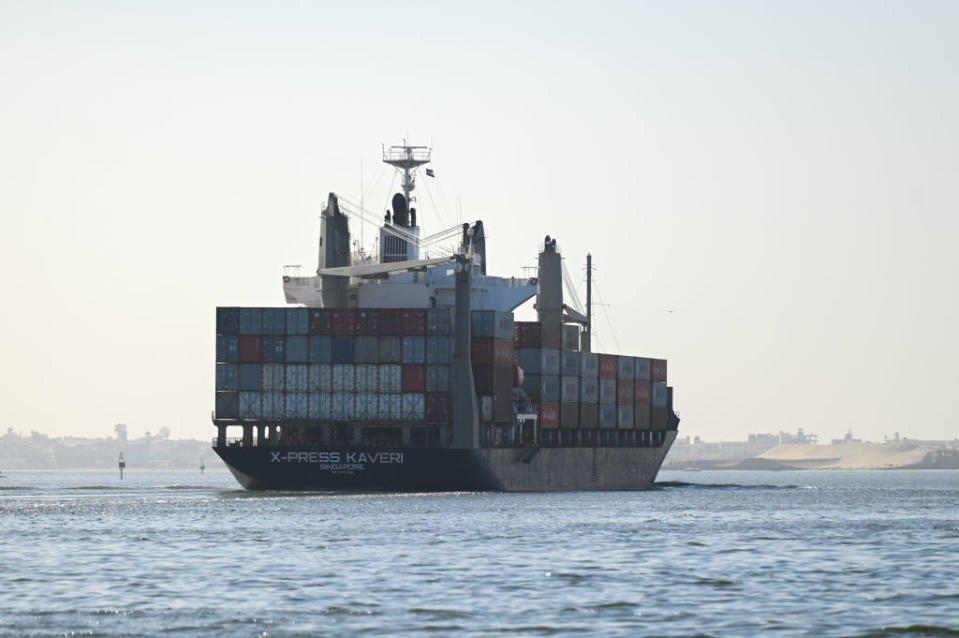Memo to Sunak and Reeves: you can’t have security without prosperity

Rachel Reeves and Rishi Sunak want to frame the next election around the question of who will make you more secure, but both are missing the point, says James Price
It was Nadhim Zahawi, founder of YouGov and soon to be ex-MP, who told me that an election is a race to define the question. Last time round we had ‘do you want to get Brexit done’, in the referendum it was ‘would you like to take back control’? Further back, Ronald Reagan brilliantly closed his 1980 Presidential election campaign by asking “Do you feel better off than you did four years ago?” This election the question may well be ‘which party will make you feel more secure?’.
That’s because – in news that will shock absolutely nobody who has ever picked up a newspaper or turned on a television – the world is getting more dangerous. After decades of politicians on all sides acting as though we had reached the end of history and could safely slash defence spending, the penny is starting to drop. Both the government and the opposition are preparing to make security a key battleground of the next election. But what do they mean by security? In a major speech this week, Rishi Sunak warned of threats to the global order, while shadow chancellor Rachel Reeves has framed her agenda around a form of fiscal stability she calls ‘securonomics’.
Both pitches have their merits. Reeves has plenty of material to work with. In recent years, inflation has soared and debt has grown. The promise of an ‘active state’ relieving us of worry about the public finances will no doubt be enticing.
On the other side, the Prime Minister is obviously correct that defence spending needs to go up. It’s not unreasonable to point out that Sir Keir Starmer twice tried to make Jeremy Corbyn – a man who wanted to scrap the armed forces, see NATO disbanded and suggested we listen to Vladimir Putin’s take on whether he was behind the Salisbury poisonings – the Prime Minister. Between that and Tony Blair’s misadventures in Iraq, Labour’s track record on defence and national security is a deeply chequered one.
Now I did an MSc in something called ‘security studies’, but you don’t need a postgraduate degree to recognise the trick both parties are playing: you sound terribly nuanced if you highlight that ‘security’ is about more than guns and borders. But it’s easy to stretch this beyond credulity, like when Sunak cites the threat of gender activists and loss of national pride alongside that of nuclear war, or when Reeves frames our economic woes as questions to which securonomics is the answer.
In book IV of The Wealth of Nations Adam Smith laid out the limited circumstances in which curbs on free trade were necessary because “defence is of much more importance than opulence”. He recognised that the first duty of a state is to protect its citizens and that there are times when we must put our self interest aside to defend our people. But he also knew that the only way you can do that is with money for guns (flintlock rifles and a massive Navy in his case).
My colleague Sam Bidwell has a mortifying list of countries the UK was richer than in GDP per capita in 2008, including the USA, Germany, and Singapore. Yet politicians act as though we can afford the protectionist, winner-picking economic policies of a rich country. Our desire to ban, block and belittle enterprise is our single biggest threat to our security. You can’t have health, energy, defence, or much else without the wealth to pay for it.
So, in the race to define the question of the next general election, the electorate should be asking who they trust to generate the prosperity that is necessary to keep us safe. On that question, ‘securonomics’ still has a large question mark over it.
James Price is director of government relations at the Adam Smith Institute

 Yahoo Finance
Yahoo Finance 